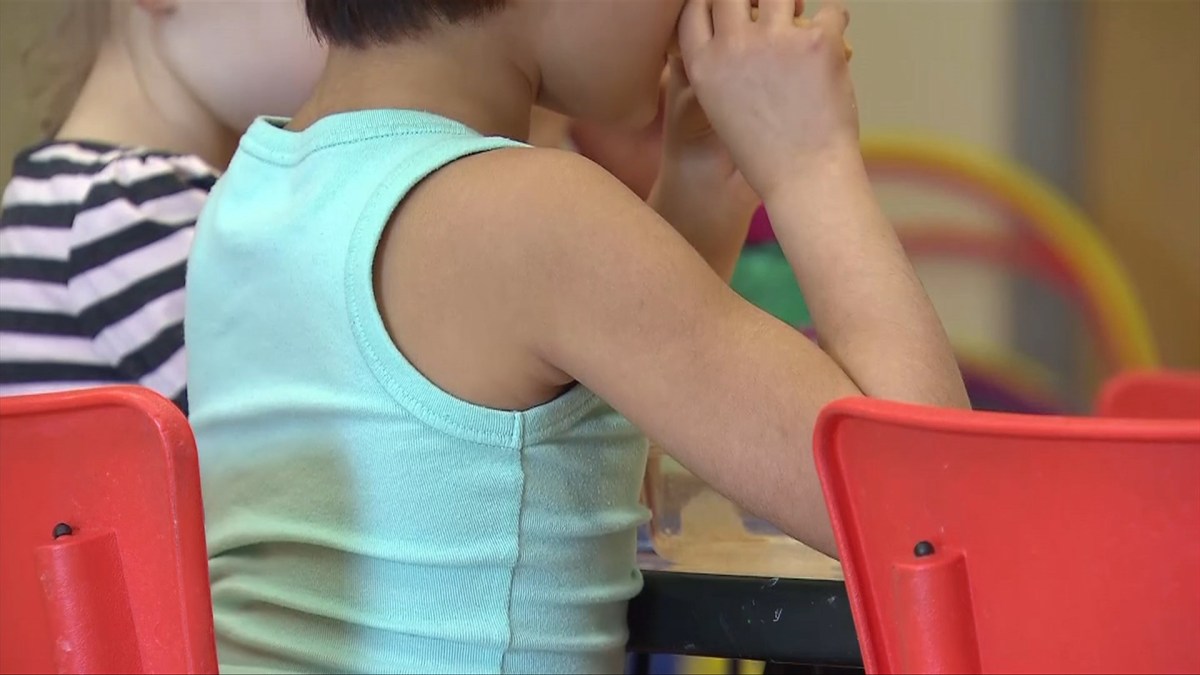Education
B.C. Government Proposes New Childcare Legislation for Schools

The government of British Columbia (B.C.) has announced new legislation aimed at increasing childcare options within schools. If approved, the proposed law would allow schools to host daycare facilities for infants and toddlers, as well as expand before-and-after school care to include services during school holidays, such as Christmas and summer breaks.
At a press conference on March 5, 2024, B.C. Premier David Eby emphasized the potential positive impact on families. “Today is what I hope will be life-changing for many parents,” he stated, highlighting the pressing need for accessible childcare in the province.
Current challenges for parents in B.C. include significant waitlists, high costs, and a shortage of qualified staff. Additionally, only a small fraction of families benefit from the province’s $10 per day childcare program. The recent announcement has sparked optimism among childcare advocates who have been urging the government to fulfill its commitments in this area.
Sharon Gregson, spokesperson for the $10aDay Child Care campaign, expressed her relief: “After a year or two of stalling on progress for childcare, to have this announcement today is really good news.” She has long advocated for modifications to the School Act to enhance childcare accessibility.
Key Questions Remain Regarding Implementation
Despite the hopeful outlook, questions about implementation linger. Gregson raised concerns about whether the daycare spaces created under this new legislation will also be offered at the $10 per day rate and who will be responsible for staffing these facilities. “If they’re publicly funded and on public school sites, we think they should be $10 per day programs,” she stated, emphasizing the need for qualified early childhood educators to work with younger children.
The specific details regarding staffing and funding were not clarified by Eby or representatives from the Ministry of Education. Eby hinted at the possibility of utilizing part-time support workers, such as educational assistants (EAs), to help staff expanded daycare services during school closures.
“CUPE is the union that represents the support workers in many schools. They have indicated that not only are the buildings available, but so are the workers who would like to transition from part-time roles to full-time positions,” Eby noted.
Infrastructure Challenges Ahead
The establishment of daycare facilities on school grounds will require adequate space, which may pose a challenge in some districts. “At some schools and school districts, space is at a premium,” Gregson pointed out, suggesting that new modular buildings may be necessary to accommodate these changes.
As the legislation moves forward, it will undergo readings, debates, and votes before any changes can be implemented. The government’s proposal has the potential to reshape childcare access in B.C., but the actual rollout will depend on how individual school boards respond to the new opportunities.
In the coming months, stakeholders will be watching closely to see how these changes unfold and whether they will effectively address the pressing childcare needs of families across British Columbia.
-

 Lifestyle1 month ago
Lifestyle1 month agoWinnipeg Celebrates Culinary Creativity During Le Burger Week 2025
-

 Health2 months ago
Health2 months agoMontreal’s Groupe Marcelle Leads Canadian Cosmetic Industry Growth
-

 Science2 months ago
Science2 months agoMicrosoft Confirms U.S. Law Overrules Canadian Data Sovereignty
-

 Education2 months ago
Education2 months agoRed River College Launches New Programs to Address Industry Needs
-

 Technology2 months ago
Technology2 months agoDragon Ball: Sparking! Zero Launching on Switch and Switch 2 This November
-

 Science2 months ago
Science2 months agoTech Innovator Amandipp Singh Transforms Hiring for Disabled
-

 Technology2 months ago
Technology2 months agoGoogle Pixel 10 Pro Fold Specs Unveiled Ahead of Launch
-

 Science2 months ago
Science2 months agoChina’s Wukong Spacesuit Sets New Standard for AI in Space
-

 Technology2 months ago
Technology2 months agoWorld of Warcraft Players Buzz Over 19-Quest Bee Challenge
-

 Science2 months ago
Science2 months agoXi Labs Innovates with New AI Operating System Set for 2025 Launch
-

 Business2 months ago
Business2 months agoDawson City Residents Rally Around Buy Canadian Movement
-

 Business2 months ago
Business2 months agoNew Estimates Reveal ChatGPT-5 Energy Use Could Soar
-

 Technology2 months ago
Technology2 months agoInnovative 140W GaN Travel Adapter Combines Power and Convenience
-

 Technology2 months ago
Technology2 months agoFuture Entertainment Launches DDoD with Gameplay Trailer Showcase
-

 Technology2 months ago
Technology2 months agoGlobal Launch of Ragnarok M: Classic Set for September 3, 2025
-

 Education2 months ago
Education2 months agoAlberta Teachers’ Strike: Potential Impacts on Students and Families
-

 Technology2 months ago
Technology2 months agoNew IDR01 Smart Ring Offers Advanced Sports Tracking for $169
-

 Technology2 months ago
Technology2 months agoArsanesia Unveils Smith’s Chronicles with Steam Page and Trailer
-

 Technology2 months ago
Technology2 months agoHumanoid Robots Compete in Hilarious Debut Games in Beijing
-

 Science2 months ago
Science2 months agoNew Precision Approach to Treating Depression Tailors Care to Patients
-

 Health2 months ago
Health2 months agoGiant Boba and Unique Treats Take Center Stage at Ottawa’s Newest Bubble Tea Shop
-

 Technology2 months ago
Technology2 months agoQuoted Tech Launches Back-to-School Discounts on PCs
-

 Business2 months ago
Business2 months agoBNA Brewing to Open New Bowling Alley in Downtown Penticton
-

 Technology2 months ago
Technology2 months agoDiscover the Relaxing Charm of Tiny Bookshop: A Cozy Gaming Escape










